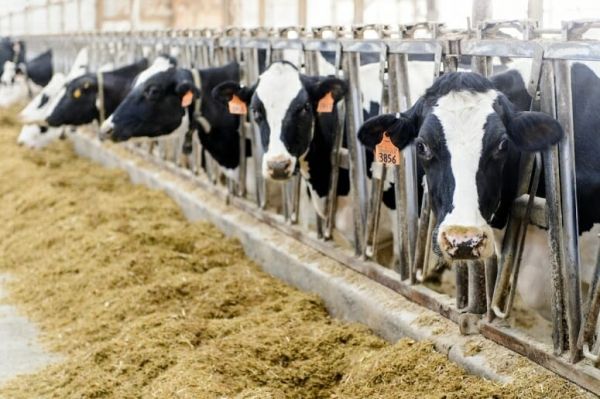A six-year-long, nationwide research project has concluded with solutions to help the dairy industry reduce greenhouse gas emissions while boosting profitability.
The $10 million Dairy Coordinated Agricultural Project, or Dairy CAP, set out in 2013 to assess the greenhouse gas contributions of the dairy industry and help farmers meet the industry’s goal to cut emissions 25 percent by 2020.
The project’s recommendations center on efficiency. Researchers found that a combination of ideal cow genetics, improved feeding strategies and better manure management could allow dairy farms to cut emissions by a third to almost half, while producing more milk with less feed.
That efficiency increases profits and ensures economic feasibility, a prime concern as farmers continue to endure years of low milk prices.
Read more at: University of Wisconsin-Madison
Dairy cows on a farm near Roxbury, Wisconsin. UW–Madison researchers found that a combination of ideal cow genetics, improved feeding strategies and better manure management could allow dairy farms to cut emissions by a third to almost half, while producing more milk with less feed. (Photo Credit: Bryce Richter)


